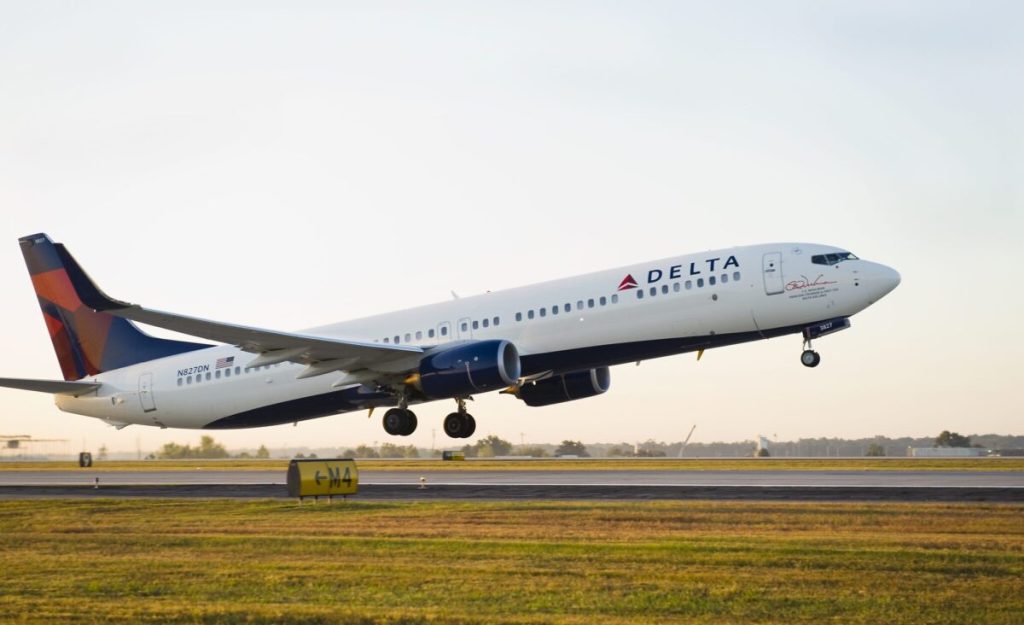Delta Air Lines has lowered its revenue forecast for the third quarter due to the CrowdStrike outage that caused the cancellation of thousands of flights. The airline now expects its revenue to be flat or up 1% for the quarter, compared to previous guidance of a 2% to 4% increase. The IT outage caused by a software update from CrowdStrike affected industries worldwide, leading to extensive flight cancellations across airlines. However, Delta faced more challenges in recovering from the outage compared to its competitors. Customers also complained about the lack of refunds, reimbursements, or meal vouchers during the meltdown, prompting an investigation by the Department of Transportation into Delta’s customer service response.
The outage is expected to cost Delta $380 million in lost revenue and $170 million in expenses. Despite this impact, Delta’s forecast is positive as it anticipates lower fuel costs and positive revenue growth in September for domestic and transatlantic flights. JetBlue, Frontier Airlines, and Alaska Airlines have also reported lower fuel costs and revenue increases. In the aftermath of the meltdown, Delta has engaged in a legal blame game with lawyers representing Microsoft and CrowdStrike. Delta hired attorney David Boies to potentially seek damages for the outage, while CrowdStrike’s lawyer claimed Delta refused their offer of onsite help during the crisis. Microsoft suggested that Delta’s outdated IT infrastructure was a factor in the prolonged recovery time, which Delta refuted.
CrowdStrike CEO George Kurz expressed willingness to resolve the matter with Delta, emphasizing the importance of maintaining a positive customer relationship. The performance of airline sector stocks within the ST200 index, which includes companies publicly traded across global markets, has been impacted by the various challenges faced by airlines due to the COVID-19 pandemic and related disruptions. The Skift Travel 200 (ST200) provides a comprehensive overview of the financial performance of nearly 200 travel companies, including airlines. The index reflects the combined value of these companies, offering insights into the overall health of the travel industry. This analysis helps stakeholders understand the challenges and opportunities facing airlines in the current market environment.


